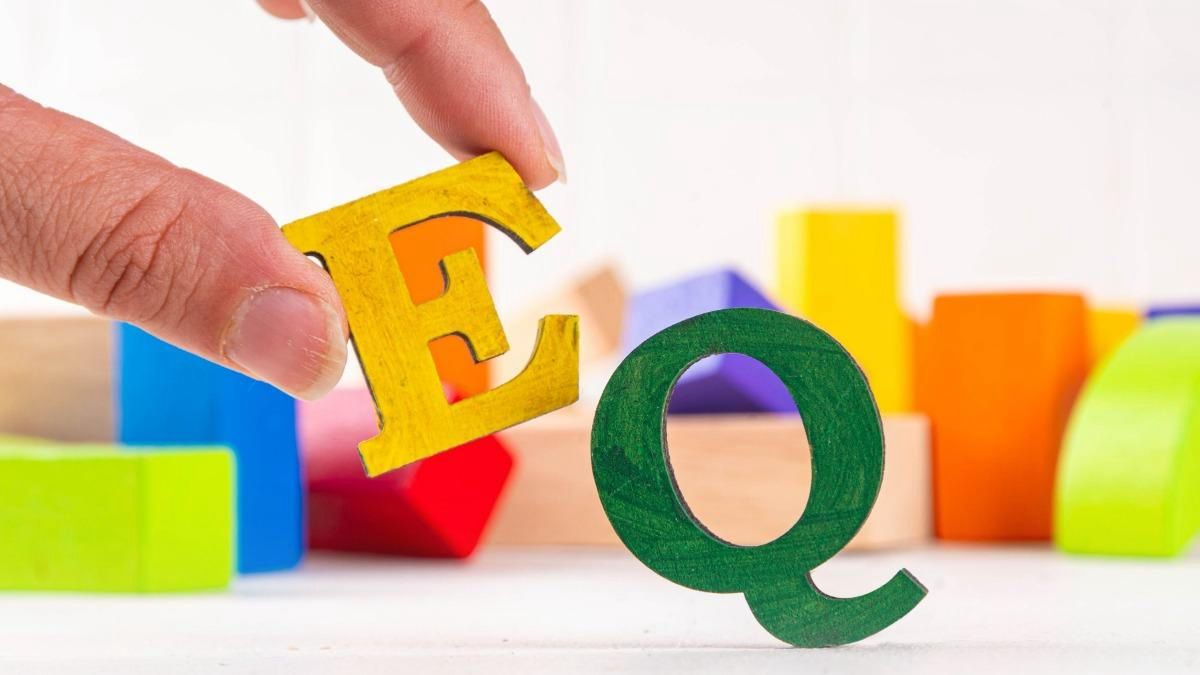Introduction
Have you ever said something in anger that you instantly regretted? Or wondered why someone reacted so strongly to your words? Have you ever walked out of a meeting frustrated because someone misunderstood your intentions? Have you ever noticed that some people seem to navigate conflict effortlessly, while others struggle? Why do some leaders inspire loyalty and motivation, while others with equal skills fail to connect?
These moments aren’t about how smart you are. They’re about emotional intelligence, known as EQ, the ability to understand and manage your own emotions, as well as the emotions of others. It plays a crucial role in shaping how we communicate, make decisions, handle stress, and build meaningful relationships, ultimately transforming our personal and professional lives.
Emotions are contagious. We tend to catch the feelings of people around us, which is why developing emotional intelligence is essential for maintaining positive connections and healthy communication.
Research shows that EQ matters more than most people realize. In fact, individuals with high emotional intelligence earn, on average, $29,000 more per year than those with lower EQ (Bradberry, 2022, Increasing Your Salary with Emotional Intelligence).
But what exactly is emotional intelligence, and how can developing it transform the way we live and connect with others?
What Is Emotional Intelligence (EQ)?
Emotional intelligence is the ability to understand and manage your own emotions while also recognizing and responding to the emotions of others. It allows you to connect deeply with your feelings, make balanced and thoughtful decisions, and build stronger, more meaningful relationships in both personal and professional settings.
By helping you manage stress, communicate effectively, empathize with others, and handle challenges constructively, EQ equips you to navigate real-life situations with greater confidence and resilience. Many experts consider it a key predictor of success, as emotional awareness shapes how we think, act, and interact every day.
The Core Components of Emotional Intelligence
There are four essential skills that form the foundation of emotional intelligence: self-awareness, self-management, social awareness, and relationship management.
1. Self-Awareness (Perceiving Emotions)
Self-awareness is the ability to recognize your own emotions and understand how they influence your thoughts, behaviors, and interactions with others. At this level, you accurately perceive what you’re feeling, identify your strengths and weaknesses, and develop a strong sense of confidence. People who are self-aware can recognize and name both positive and negative emotions, make wiser decisions, communicate clearly, and build stronger relationships.
For example: Noticing that you feel frustrated during a meeting and taking a deep breath before responding calmly.
2. Self-Management (Managing Emotions)
Self-management is the ability to control your emotions and behaviors, especially in challenging or stressful situations. It involves managing impulsive reactions, staying calm under pressure, adapting to change, honoring commitments, and taking initiative. By mastering self-management, you maintain emotional balance and respond thoughtfully rather than reactively.
For example: Feeling angry after receiving critical feedback but choosing to pause, reflect on what was said, and use it as an opportunity to improve instead of reacting defensively.
Also, changes in the body can influence emotions. Even small adjustments in posture, breathing, or movement can shift how we feel , reminding us that managing our body is a powerful way to manage our emotions.
For example: During a stressful team meeting, slowing your breathing and relaxing your shoulders can help you stay composed and respond rationally instead of reacting out of frustration.
3. Social Awareness (Understanding Emotions & Reasoning with Emotions)
Social awareness is the ability to perceive, interpret, and respond to the emotions of others. It relies on understanding verbal and nonverbal cues such as facial expressions, tone of voice, body language, and gestures.
Mindfulness allows you to stay present and notice emotions without distraction, while empathy helps you understand and resonate with others feelings.
For example: When talking to a friend, you sense from their tone and posture that they’re upset even though they say they’re “fine,” so you offer a listening ear and give them space to open up.
Together, they strengthen relationships and improve your ability to respond with compassion and understanding.
4. Relationship Management (Managing Emotions & Reasoning with Emotions)
Relationship management is the ability to develop and maintain positive connections by communicating clearly, inspiring and influencing others, working effectively in teams, managing conflicts constructively, and using empathy and even humor to strengthen connections.
For example: As a team leader, you notice low morale after a tough project. You motivate the team by acknowledging everyone’s effort, expressing appreciation, and sharing words of encouragement to boost their energy.
Why Emotional Intelligence Matters
Emotional intelligence influences every aspect of life from how we work to how we interact with others. Here’s how it makes a difference:
- Performance at school or work: Helps you navigate challenges, stay motivated, collaborate effectively, and achieve goals.
- Physical health: Poor emotional management increases stress, which can weaken the immune system, disrupt sleep, and lead to various health problems.
- Mental health: Unmanaged emotions contribute to anxiety, depression, and loneliness.
- Relationships: Understanding your emotions and those of others allows clearer communication, deeper trust, and stronger personal and professional connections.
- Social intelligence: Enables you to read social cues, ease tension, adapt to social situations, and maintain emotional balance. It fosters a sense of belonging and happiness in your interactions with others.
Our emotions also shape how we perceive the world around us. When we feel happy, we tend to see situations positively. Which reinforces happiness even further. This shows how the mind, body, language, and emotions are deeply interconnected, each influencing the other in powerful ways.
How to Improve Your Emotional Intelligence
Developing emotional intelligence is an ongoing process that requires self-reflection, practice, and openness to growth. By actively working on self-awareness, empathy, and social skills, you can strengthen your ability to understand and manage emotions more effectively in all areas of life.
- Recognize and Name Your Emotions: Pause and identify what you feel before reacting. It helps you understand their source and respond more thoughtfully.
For example: You notice you’re feeling irritated after a long day and realize it’s because you haven’t eaten or taken a break. - Ask for Feedback: Seek honest opinions to understand how others perceive your emotional responses. Their perspectives can reveal blind spots and areas for growth.
For example: After presenting a project, you ask your teacher or manager how you handled pressure and whether you seemed confident. - Practice Empathy: Consider situations from others perspectives and imagine how you would feel in their place. This builds compassion and strengthens your emotional connections.
For example: When a friend cancels plans last minute, instead of getting annoyed, you think about what might have caused their stress and respond with understanding. - Listen Actively: Pay attention to both verbal and nonverbal communication, such as tone and body language. Active listening improves understanding and prevents miscommunication.
For example : During a meeting, you notice a teammate hesitates before agreeing with an idea, so you invite them to share their honest opinion. - Reflect and Learn: Take time to think about what happened, how you felt, and how you might respond differently next time. Reflection promotes self-awareness and growth.
For example: After a disagreement, you replay the conversation in your mind to understand what triggered your reaction and how you could express your feelings more calmly next time. - Manage Stress: Use mindfulness, deep breathing, humor, or relaxation techniques to stay calm and balanced when facing challenges. A centered mind leads to better emotional control.
For example: When feeling overwhelmed by deadlines, you take a few deep breaths or go for a short walk to clear your mind before continuing.
Improving emotional intelligence isn’t about being perfect. It’s about becoming more aware, one reaction at a time.
Can Emotional Intelligence Be Learned?
Yes. With time and practice, emotional intelligence changes the way you see yourself and others.
You begin to understand people more deeply and respond with empathy instead of judgment. When you develop emotional intelligence, it becomes hard to truly hate someone, because you start to see why they are the way they are. Most people see an adult, but you recognize a hurt child inside someone who never really healed.
Once you understand this, you stop taking things so personally. You realize that people often project their pain, fears, and past experiences onto others. Hurt people hurt people. This doesn’t excuse their behavior, but it helps you understand it. With this mindset, you can take a step back, allow others to walk their own path, and protect your own peace.
Common EQ Myths
Emotional intelligence is often misunderstood. Many people hold misconceptions about what EQ really means and how it functions. Below are some of the most common myths and the truths behind them:
Myth: High EQ means having no emotions.
Reality: People with high emotional intelligence still experience emotions such as anger, sadness, and frustration. They just manage them effectively.
Myth: EQ is a form of manipulation.
Reality: Emotional intelligence is not about controlling others. It’s about understanding emotions to communicate clearly, build trust, and resolve problems effectively.
Myth: People with high EQ are always calm.
Reality: High EQ doesn’t mean being emotionless; it means responding appropriately in any situation.
Myth: A high IQ equals a high EQ.
Reality: A high IQ doesn’t automatically come with high emotional intelligence. EQ must be developed separately.
Myth: High EQ makes you charismatic.
Reality: Emotionally intelligent people communicate well and empathize with others, but they aren’t necessarily charismatic.
Myth: Emotions don’t belong in business.
Reality: Emotions are part of decision-making and human interaction; EQ helps manage emotions effectively to succeed professionally.
Conclusion
Emotional intelligence is a vital life skill that shapes how we understand ourselves and connect with others. It isn’t something we’re born with, but a capacity that each of us can develop and strengthen over time. By cultivating self-awareness, managing our emotions effectively, and practicing empathy in our relationships, we lay the foundation for personal growth, stronger connections, wiser decisions, and lasting success.
The journey toward higher emotional intelligence begins with a single step: noticing your emotions, understanding why they arise, and responding with intention rather than impulse. Every moment is an opportunity to grow, deepen connections, and lead a more balanced and fulfilling life.
So, take a moment to reflect. What emotion did you feel most strongly today, and how did it shape your actions?
8 – Nov – 2025
Gaelle Abou Jaoude

